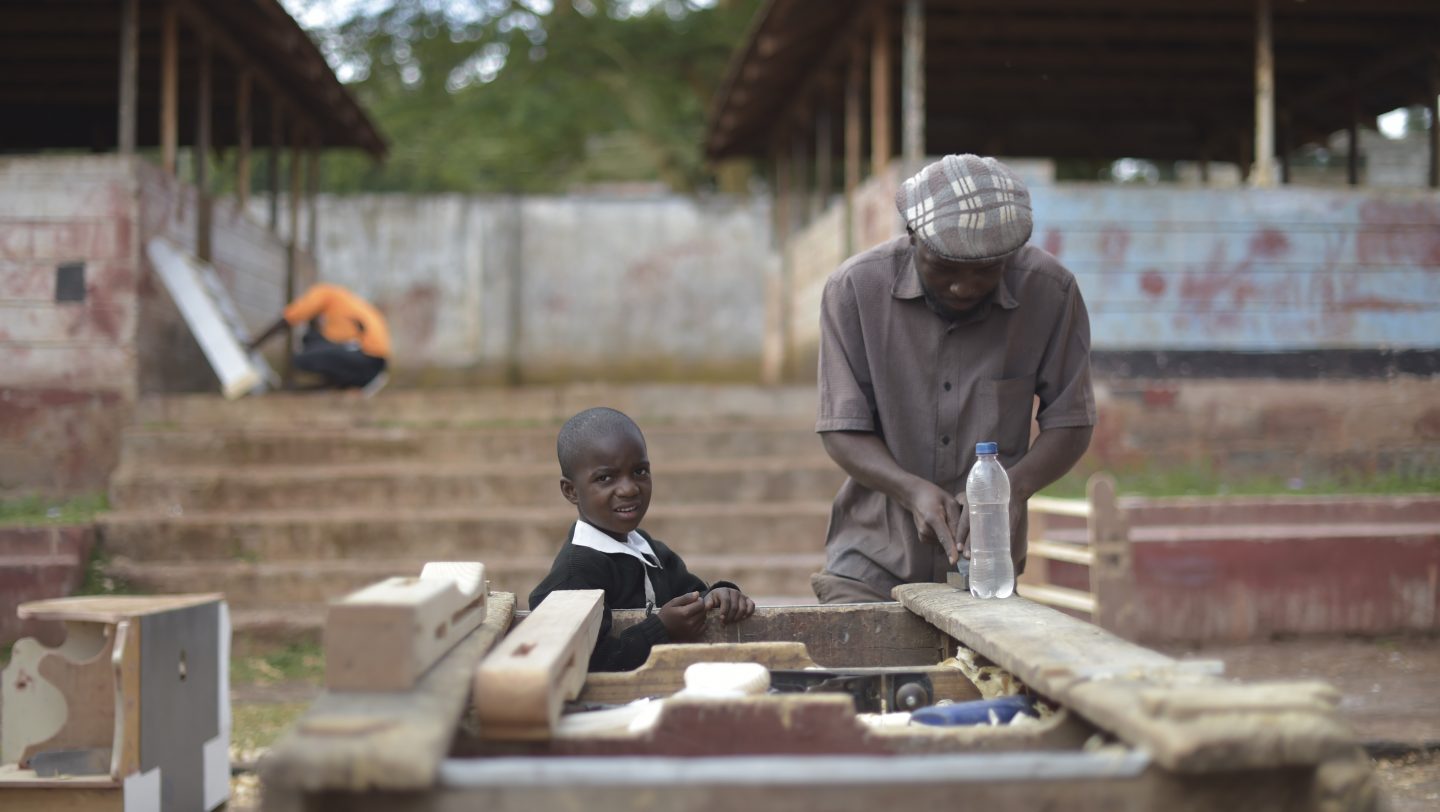The Shona: A stateless community in Kenya yearning to gain citizenship
“Even in Zimbabwe they cannot accept me. I am considered to be a foreigner. They cannot accept me. I was born in Kenya.”

88 year old Mofat Ngwabi, originally from Zimbabwe first came to Kenya in 1973 as a missionary for the Gospel of God church. He, his seven children, nine grandchildren, and two great grandchildren – are stateless. Lacking nationality. UNHCR/T.Jones
88 year old Mofat Ngwabi, sits comfortably in his chair in his home in Kinoo in the ouskirts of Nairobi, Kenya. Mofat is one of the few still alive who remembers when the Shona people of Zimbabwe arrived in Kenya in the 1960s.
He was part of a group of around 100 missionaries, who came to establish the Gospel of God Church. When they arrived they were met and welcomed by the first post-independence President of Kenya, Jomo Kenyatta. Mofat looks on proudly at a photo of the encounter with the President that hangs on the wall in the church office.
Despite the meeting, and receiving the blessing of the President to establish a church, the Shona could not be registered because under the first post-independence constitution, there was no provision for people not of Kenyan descent to be registered as citizens.
“We can’t enjoy services that nationals enjoy.”
It has rendered them stateless today, meaning without Kenyan citizenship or nationality.
As a result, Mofat, his seven children, nine grandchildren, and two great grandchildren who were all born in Kenya, have never had the right to become citizens. Though they speak the national language, Swahili, and local Kikuyu dialect spoken where they live. Though they are deeply ingrained in Kenya culture, from food to music. Though none of them has ever left Kenya to travel abroad, the fact that they are not recognized as Kenyans has left the family feeling a deep sense of despair.
It’s a problem affecting over 4000 Shona people in Kenya who descended from the church.
Mike Moyo, a Carpenter in nearby Kiambu County just outside the capital, is in the same situation as Mofat. All of Mike’s 10 children and 7 grandchildren were born in Kenya but are stateless.
“We are like dead men walking.”
“All my 10 children do not have birth certificates, and the older ones do not have identity cards. It’s awful,” says Mike.
Ramik, Mike’s eldest son says the effects have been dreadful.
“We can’t enjoy services that nationals enjoy. We don’t have mobile banking and going to the hospital is also a challenge. Birth certificate are needed for class 8 registration for our children who are in primary school so sometimes we are forced to ‘buy’ parents so that our children can continue with education. We cannot even save money.”
And so the vicious cycle of statelessness continues to the next generation in the Moyo family.
Some Shona people have married Kenyans which has helped their children acquire documents such as birth certificates. But the Shona say marrying nationals is not the solution. They say they deserve to be recognized as Kenyans.
The situation has meant that thousands of Shona people can’t be employed formally, and so survive doing informal work.
Many Shona women weave baskets and do bead work to put food on the table they say. A lack of documents has forced them to sell their products for far less than they are worth through middle men.
Ben Kapota, a stateless father of eight who also lives in Kiambu says;
“I have been arrested several times because of moving around without an identity card. My community members had to bail me out. We are like dead men walking. If anything happens to us far from home, people will not be able to identify you just because you do not have an identity card.”
“I have been arrested several times because of moving around without an identity card.”
“If I got an ID card today, the first thing I will do is to get a driver’s license, then get a passport and start doing business.” Says Ben.
Despite the situation, many Shona are however hopeful that the Kenyan government will give them citizenship soon.
Shona community leaders and UNHCR, the UN Refugee Agency in Kenya, have met with the government to try and find a solution for Shona people.
The Makonde community, originally from Mozambique were recently recognized by the government as Kenyans and given nationality, as the 43rd tribe of Kenya. This act has revived hopes that there will be a speedy solution for the Shona.
Read our statelessness report, “This is our home”: Stateless minorities and their search for citizenship” here. The report was released to mark the third year of the #IBelong campaign to end statelessness.
Share on Facebook Share on Twitter





